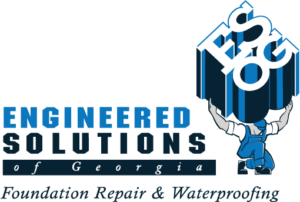Common Causes of Retaining Wall Problems and How to Address Them in the Atlanta-Metro Area
Jun 05, 2024
Your retaining wall at home plays a vital role in keeping your yard intact, but it’s not immune to problems that can crop up over time. It’s important for homeowners to know what could go wrong with their retaining walls so they can protect their property and make smart choices. In this article, we’ll dig into why retaining walls sometimes run into trouble and offer practical ways to fix them.
Understanding Retaining Wall Failure
Retaining walls are built to hold soil in place and prevent erosion, but sometimes they can fail for different reasons, which can affect how stable they are and how well they work. It’s important for homeowners to understand how retaining walls work so they can spot problems early and take steps to fix them before they become bigger issues.
Common Causes of Retaining Wall Problems
Several factors contribute to retaining wall problems, including:
- Poor Drainage: Poor drainage behind the retaining wall can cause too much pressure to build up, which can make the wall unstable and eventually cause it to fail.
- Soil Erosion: This happens when the soil gradually washes away or wears down. This can weaken the foundation of the retaining wall, making it lean or even collapse as time goes on.
- Incorrect Design or Construction: Mistakes in how the retaining wall was designed or built, not using enough support or using low-quality materials, can weaken the structure of the wall.
- External Pressure: External factors like nearby buildings, trees, or heavy rain can push against the retaining wall, making it move or develop cracks.
- Lack of Maintenance: If you don’t check your retaining wall regularly and take care of any small problems, they could turn into big issues that affect how stable the wall is.
Signs of Retaining Wall Issues
Homeowners should be vigilant for signs indicating potential retaining wall problems, including:
- Leaning or Tilting: If you notice that your retaining wall is leaning or tilting visibly, it could mean that there’s a problem with its stability, and it’s important to address it promptly.
- Cracks or Bulges: Keep an eye out for any cracks or bulges in your retaining wall, as they might be signs of deeper issues with its foundation or the materials it’s made of.
- Water Stains: If you see water stains or spots where water is seeping through along your retaining wall, it could be a sign of drainage issues or damage to the waterproofing layer.
- Vegetation Growth: Excessive growth of plants on or near your retaining wall might indicate that water is pooling or not draining properly, which could lead to erosion problems over time.
Addressing Retaining Wall Problems
When faced with retaining wall problems, homeowners should:
- Get Expert Help: If you notice any issues with your retaining wall, it’s best to reach out to foundation repair professionals who specialize in fixing these problems. They can thoroughly inspect the damage and suggest the right solutions.
- Repair or Strengthen: Depending on how serious the problem is, repairs might involve reinforcing the current structure, replacing damaged parts, or adding extra support.
- Fix Drainage: Dealing with drainage problems is crucial. Solutions like adding drainage holes, French drains, or gravel can ease the pressure on your retaining wall and stop future issues.
- Think About Rebuilding: If your retaining wall has suffered severe damage or seems unstable, rebuilding it might be the safest option for long-term stability and safety.
Importance of Professional Assistance
Sometimes, homeowners might try fixing retaining wall issues themselves. However, these problems usually need specific expertise and tools. Bringing in professional contractors who specialize in foundation repair ensures that the repairs are done right, keeping you safe and preventing more damage.
Preventative Measures for Long-Term Stability
To prevent retaining wall problems in the future, homeowners can:
- Schedule Regular Inspections: Conduct routine inspections of the retaining wall to identify and address minor issues before they escalate.
- Maintain Proper Drainage: Keep drainage systems clear and functional to prevent water buildup behind the retaining wall.
- Choose Quality Materials: Invest in high-quality materials and professional installation to ensure the longevity and durability of the retaining wall.
Retaining wall issues can be tough for homeowners, but with some proactive steps and help from pros, they can be fixed. By knowing what usually causes these problems and taking steps to prevent them, homeowners can keep their properties safe and their outdoor spaces looking good.
If you’re experiencing retaining wall issues in the Atlanta-Metro area and surrounding areas, contact Engineering Solutions of Georgia for an inspection and expert assistance.

